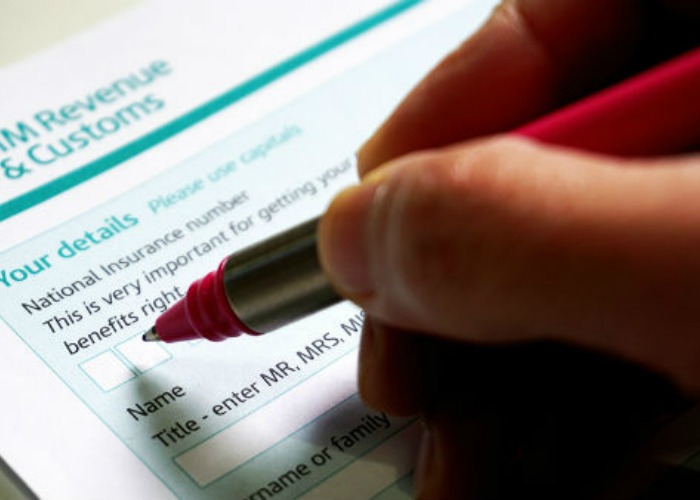Investing in retirement: tips for securing your financial future

Are you considering investing in retirement? Here’s what you need to consider.
It’s no secret that we’re all living longer. As a case in point, the number of centenarians in the UK jumped a staggering 85% between 2002 and 2017, according to the Office for National Statistics.
While we’ve already started to see how this is changing retirement plans – from multiple careers, to working longer and wanting more flexibility – there’s still more we need to do to ensure we don’t run out of funds in later life.
Traditionally, we've tended to focus on moving from growing cash to investing for income, but this might not work, or at least the transition should happen later.
So here are five tips on investing for retirement to make your cash work as hard as possible, for as long as possible.
How to invest: read our complete guide to shares, buy-to-let, peer to peer and more
Know how much you need
Understanding how much income you’ll need for your ideal retirement is obviously a key part of your investment strategy.
Regardless of whether you put your savings into shares or bonds, or spread your investments to include other asset types, you’ll need to work out roughly how much you’ll need to take from your portfolio each year.

It’s important that you’ve got enough to provide for that big holiday, to help your grandchildren with university or onto the housing ladder.
But you also need to have room for manoeuvre – in case you change your mind, encounter unplanned expenses, or simply don’t want to touch your pension pot.
If you don’t take the time to work out your needs and goals you risk running out money, while being too conservative could mean the plans you have won’t materialise.
Stocks & Shares ISA: how does it work, 2019/20 limit, how to invest, fees and more
Goals, goals, goals
If you’ve invested money over the years, you’ll likely have focused on funds and assets that generate the best returns.
Retirement, on the other hand, may well warrant a change in approach.
Many of us would probably say that quality of life, not frugality, is a key part of retirement.
Taking a goals-based approach, rather than focusing too much on having the best returns, might help you to better understand whether your investments are delivering enough for the life you plan to lead.
After all, if your income in retirement is for living life to the full, returns may no longer be your priority.

But it’s here that the notion of our potentially 100-year lives creeps in again – retirement is simply not what it used to be.
While you may be ready to retire and stop working, your retirement could well be as long, or almost as long, as the time spent saving for it.
That’s a lengthy period, so we may want to extend the time we spend investing for growth to account for the fact that our earning power won’t be extended and we’re living for longer.
What’s more, we can’t predict what markets will do, and we may well miss out on returns that could help any pension pots stretch a little further.
Everything you need to know about pensions - in plain English
Don’t make retirement too taxing
What sources of income you choose to draw on in later life can have an impact on the tax bill you’ll face in retirement, which may in turn affect whether or not your savings last.
If you’re accessing money from a pension you’ve saved over the years, it’s important that you understand the tax implications of drawing on those savings.
You can normally take up to 25% of your pension pot tax-free, but the remaining 75% is taxable, even if you’ve moved your pension into income drawdown.
If you do need to take your investments as an income, consider spreading the withdrawals you make over several years and maximising the benefits of your Personal Allowance (currently £12,500).

If you’ve invested a larger amount that is generating sufficient growth, you might even be able to simply access the income from dividends and interest.
On top of any personal or workplace pension scheme savings you have, it’s also worth considering investing in an Individual Savings Account (ISA), such as a Stocks and Shares ISA before retirement.
ISAs are a tax-efficient way of building your nest egg as you usually aren’t charged Income Tax or Capital Gains Tax (although this depends on your personal tax situation).
You can also access the cash without having to draw on your pension and take your money out of the market at any time.
Ultimately, the amount of tax you’ll have to pay in retirement depends greatly on your personal circumstances. That’s why taking advantage of good guidance can make a difference.
There is plenty of support available through the independent Money Advice Service or you could speak to a financial adviser.
Alternatively, Legal & General has a hub of guidance and tips-based content, dubbed the Legal & General Academy, which may have what you’re looking for.
Common mistakes to avoid when you’re about to retire
Equities still have a role
The 100-year life, by virtue of its length, means you’re more likely to be hit by changes in living costs.
For example, you might have set up your investments to pay a regular monthly income, but over time as living costs rise and inflation hits, your purchasing power may fall.

One way some investors are seeking to balance the impact of inflation on their retirement income is by increasingly involving equities in their long-term retirement strategy.
By including more shares in your investment mix, you’ll be able to take advantage of the potentially higher returns that equity investing can offer.
Of course, doing so will also increase your exposure to market movements.
So, think carefully (or speak to a professional) about whether you’re happy to take on risk and consider your capacity for loss – that’s the amount of potential loss to your savings you’re able to bear.
Rodney Hobson's 10 tips for first-time investors
The worst action is no action
Retirement is different for everyone, but there are also big differences between your lifestyle in your 60s and your needs in your 80s.
Make sure your retirement income continues to meet your needs by keeping tabs on the progress of your investments and make any adjustments to your portfolio where necessary.
This could include rebalancing your investments and reducing or increasing your exposure to asset types.
For example, if you’re after more certainty, you might want to think about spreading your investments across asset types and including fixed income (bonds) investments in your portfolio.
Alternatively, if you want to put yourself in a position to benefit from potential market growth, you might consider increasing your exposure to shares and increase the risk you’re willing to take.
Above all, one of the worst mistakes you can make is to do nothing.
Whether you’re keeping up with inflation and have enough to lead the life you want, or if you need to revisit your investments and adjust accordingly, it’s better to know where you stand with your finances rather than hoping for the best and missing out on potential returns that investing can bring.
This article was written in March 2019 by Janine Menasakanian, the former head of distribution strategy at Legal & General.
The information included in this article does not constitute regulated financial advice. You should seek out independent, professional financial advice before making an investment decision. Please remember the value of your investment and any income from it may fall as well as rise and is not guaranteed. You may get back less than you invest.
Comments
Be the first to comment
Do you want to comment on this article? You need to be signed in for this feature